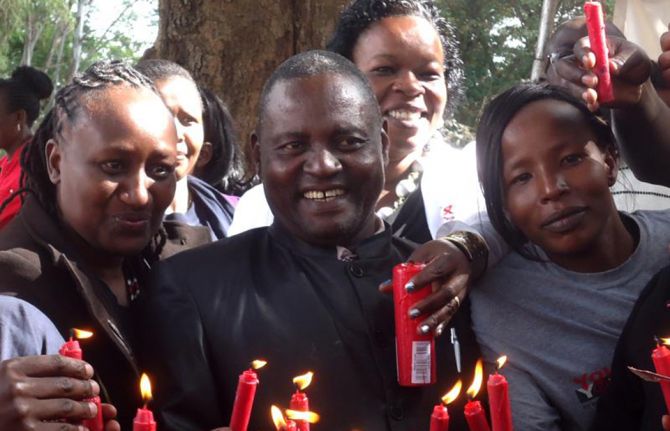

Feature Story
UNAIDS saddened by the death of Joe Muriuki
18 February 2022
18 February 2022 18 February 2022By David Chipanta, UNAIDS Senior Adviser, Social Protection
Joe Muriuki was a son of the African soil, born and raised in Kenya, a local, national and global advocate for the right of people living with HIV to access life-saving HIV treatment free from stigma and discrimination. In 1987, he became the first Kenyan and among the first of all people living with HIV in Africa to share publicly that he was living with HIV.
Mr Muriuki died from oesophagus cancer-related complications on 14 February 2022, having lived a healthy life with HIV for more than 36 years, thanks to his access to life-saving HIV treatment and through living his life with a sense of purpose.
Mr Muriuki fought against AIDS-related stigma and discrimination in his native Kenya at a time when an HIV diagnosis was thought to mean imminent death. He offered a testimony that a healthy life with HIV was possible. He formed the first support group of people living with HIV in Kenya, the Know AIDS Society, to encourage people living with HIV to overcome fear, stigma and discrimination and to advocate for changing policies and laws to remove AIDS-related stigma and discrimination.
After his HIV diagnosis, stigma and discrimination forced Mr Muriuki to leave his job, and he returned to his home city, Nyeri, to await his death. In Nyeri, the stigma and discrimination he experienced stopped him from opening a bank account. However, he overcame the obstacles in his path and decided to dedicate his life to a crusade against HIV. His courage and conviction to openly disclose his HIV status, and to fight AIDS-related stigma and discrimination, were heroic.
His campaigning also formed the foundation of Kenya’s national AIDS response, prompting the government to declare AIDS a national disaster before establishing the National AIDS Control Council in 1999. Mr Muriuki was also active globally, advocating for access to life-saving HIV treatment for people living with HIV in Africa and their greater involvement in the AIDS response. He served in the Network of African People Living with HIV, the Global Network of People Living with HIV, the International Treatment Preparedness Coalition and the Pan African Treatment Movement, among other organizations, advocating with candour for equitable access to HIV treatment for people living with HIV in Africa.
Although Mr Muriuki’s HIV was virally suppressed, from 2018 he struggled with cancer, eventually dying from its complications. He was worried that the AIDS response was ignoring noncommunicable diseases and in his work with Kenya’s HIV Tribunal he pushed for noncommunicable diseases to be brought to the forefront of the AIDS response.
Mr Muriuki will be sorely missed by his family, friends and colleagues in Kenya and around the world.



